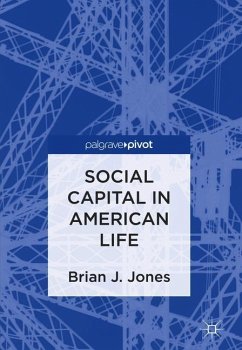Embarking from a model of social capital hinging upon four social structures-work, family, social networks, and voluntary associations-Brian Jones empirically examines the widespread claims that American society is becoming less sociable, trusting, and cooperative. Breaking down datasets drawn from the General Social Survey (conducted 27 times from 1972 to 2008), Social Capital in American Life depicts the social values drawn from the four established social structures, as well as their interrelationships, their determinants, and ultimately their social capital, through a series of statistical and econometric methods. This rigorous, empirically driven analysis reveals how American society both confirms and repudiates fears about decreased cooperation given different cases and parameters.








